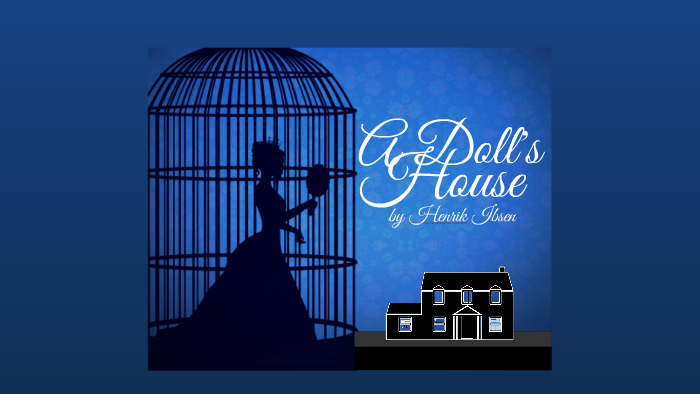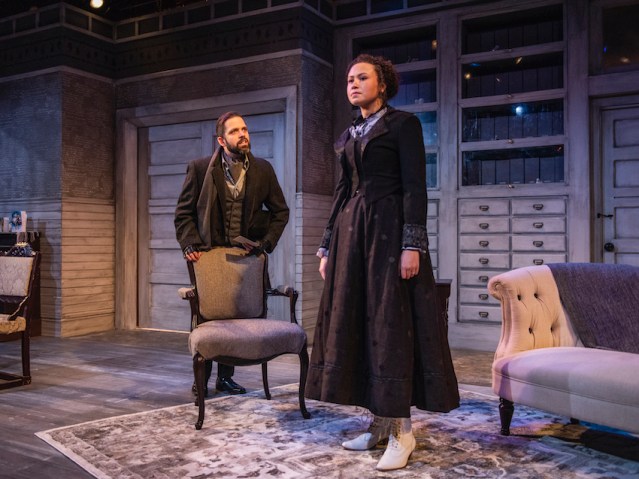Analysis of A Doll's House

Analysis of A Doll's House
Henrik Ibsen composed the play "A Doll's House" on December 21st, 1879. The play's geological setting is around the 1870's in a Norwegian town. The time the play falls in is the Victorian period. In "A Doll's House" Nora the fundamental person goes through a feeling of acknowledgment in her marriage with Torvald. We will perceive what a ladies' job is in this period and how Nora herself develops into an entirely distinctive person from start to finish. She has her inspirations for the manner in which she acts all through the play and the individual she winds up becoming.

Toward the start of Act 1 we first see Nora tidying up her home and getting ready for Christmas Eve. We would initially think Nora is only a normal house spouse that is just with Torvald for the cash and does anything to satisfy him. Torvald has a controlling character that will cause Nora to do whatever he requests that she do. He will call her by pet names and ridicule her for spending her cash on pointless things. Nora's old companion from school drops by and they make up for lost time with what has been going on in their life. Nora gave me a feeling of her appearance to her companion since her better half got another situation in the Joint Stock Bank. Nora says to Mrs. Linden "… I feel so light and glad! It's awesome to have bunches of cash, and no compelling reason to stress over things, isn't it?" (Ibsen 13; Act 1).
Mrs. Linde's better half passed on and she was left with no cash or youngsters while Nora has three kids and will currently have a decent measure of cash on account of her significant other's new position. Nora then, at that point, keeps on discussing her outing to Italy because of her better half being sick. She reveals to her companion she acquired cash from and admirer yet doesn't have any desire to disclose to Mrs.Linde who it was she got the cash from. Another person comes into the play which prompts Nora's conduct/mentality changing to being concerned and stressed.
The new person that comes into the play is a man named Krogstad who worked at the bank yet got laid off for carrying out a wrongdoing. At the point when Nora sees him you can tell there is some pressure going on which makes us think he and she are concealing something. At the point when Krogstad converses with Nora, we discover he is the person who gave her the cash to assist Torvald with getting. In this A Doll's House essays discussion "She is the subject of a potential extortion as somebody takes steps to uncover her actual authorial character" (Teeman).
This shows that Krogstad is extorting her since he needs Nora to assist him with landing his position back at the bank. Nora doesn't need Torvald to discover what she did and she fears Torvald will consider her to be an alternate individual. Nora is seen all through the play stressed on the grounds that she has the possibility of Krogstad educating Torvald regarding what she did and about confronting the results. We discover that Nora perpetrated a wrongdoing too by producing her dad's mark.
This is the motivation behind why Krogstad is coercing her yet he will stop except if Nora does what he inquires. The manner in which Nora is reacting to what Krogstad is disclosing to her shows that she fears Torvald discovering. We see that "Torvald and Nora's relationship isn't one of trust and love, but one of mistreatment and mystery" (Meadows). Nora staying discreet and being constrained by him makes me see why she doesn't want him to discover. She is anxious about the possibility that he will baffle him and see her in an unexpected way.
Nora acknowledges toward the end that her marriage isn't as it used to be and defies Torvald about it. Torvald gets another letter via the post office from Krogstad saying he will do nothing with the report and her mystery is protected with him. This prompts Torvald going about as though nothing at any point occurred as though he never blew up with Nora. He asserts he is saved however by then Nora acknowledges something she won't ever take note of. She tells Torvald "You don't get me; and I have never perceived you-till-to-night" (Ibsen 112; Act 3).

She sees that all Torvald thought often about was cash. She saw that he regarded her as a doll and nothing else as her dad did as well. Nora saw she was being constrained by him and didn't have opportunity in her marriage. As Noelle89 says "She was a lady looking for freedom from the injuries of society and the standard of men which was put upon her on account of sex". Nora left since she needed to discover the opportunity she lost while being hitched to Torvald for a very long time. She needed to have the option to do anything she desires without having somebody instruct her, what not to, and what to wear or the proper behavior. She forfeited passing on her youngsters in return to encounter what opportunity resembles.
In the play "A Doll's House" by Henrik Ibsen he shows the lady's job in the Victorian period. With his principle character Nora, she advances into this autonomous lady who acknowledges she is being constrained by her significant other. She decides to leave this marriage which numerous ladies would not try to do. Ladies in those days didn't have a voice and for Ibsen to show us in this play was astonishing to perceive how somebody can go from being controlled to acknowledging they were not free.



